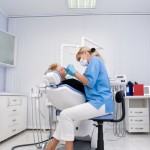The overall goal of technology is to make life easier for us. The healthcare industry is certainly included in the list of fields that can benefit greatly from technological advances. While there have been major improvements in healthcare’s use of technology, for the most part, the industry has not embraced these advances as openly as other industries. Especially in critical care, extensive use of information technology could be used to successfully acquire and then analyze data, with products like USB data acquisition systems simplifying the process.
Current Limitations
In emergency rooms as of now, large volumes of data are constantly being collected from disparate sources and reviewed usually after the fact. Healthcare providers have to navigate a mess of monitors, screens, applications, and paper charts to get all the information they need on their patients. Data from patient monitors and bedside medical devices is difficult to acquire and store digitally. Most of these devices have data output ports, but there is no universally adopted standard that allows for multimodal data acquisition and synchronization. Each device runs slightly differently.
Looking Forward
With better data collection technologies, like USB data acquisition systems, patient information could be taken more frequently and in a more convenient way for healthcare providers to analyze. This could lead to better and faster diagnoses and a general increase in organization throughout hospitals.
The Importance of Time
One of the best things that USB data acquisition systems could bring to critical care is time synchronization and a sort of master clock that ensures that all the waveforms and values acquired line up in sync. Without this synchronization, interpreting all of this data and seeing the interrelationships would be very difficult, if not impossible. Using advanced technology would make this all possible.
Where Do We Go From Here?
We are on the verge of a data-driven scientific era that will allow us to generate hypotheses automatically from the immense amounts of data we have access to and inductive reasoning. If we have the ability to use technology to better human life, it seems foolish not to pursue it. Accepting new technology could be a major game changer in certain types of decision-making.





